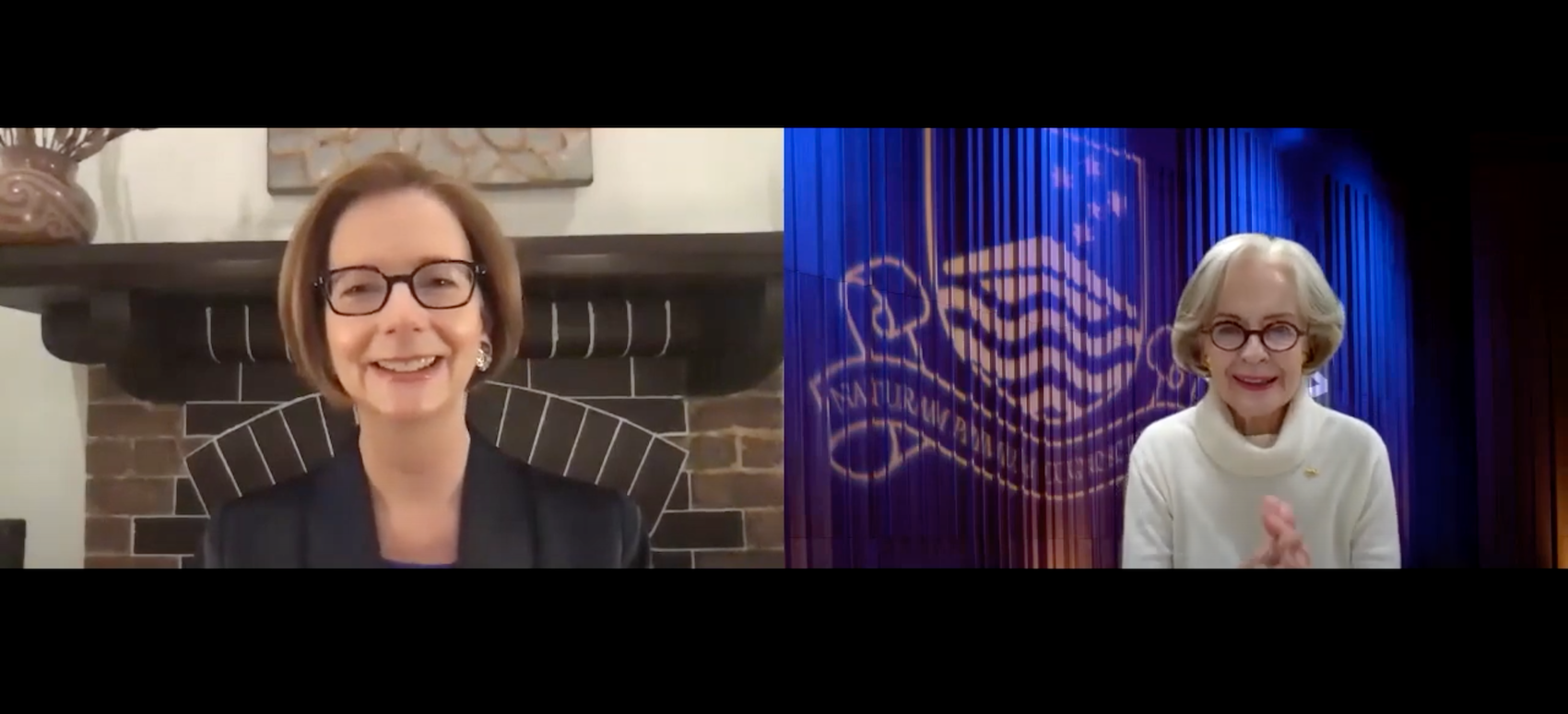1. The novel is dead. And this time it’s women who have murdered it. The Guardian. 10 July.
No one wants to make the Great White Male Novelist extinct – they just want more diversity in publishing.
2. Domestic violence on the rise during pandemic. The Sydney Morning Herald. 13 July.
Almost one in 10 Australian women in a relationship has experienced domestic violence during the coronavirus crisis, with two-thirds saying the attacks started or became worse during the pandemic. A survey by the Australian Institute of Criminology also reveals more than half of women who had experienced physical or sexual violence before COVID-19 said the violence had become more frequent or severe since the start of the pandemic.
3. The Politician’s Theo Germaine on why the future of beauty is gender neutral. Vogue Australia. 13 July.
Actor and trans activist Theo Germaine discusses the damaging effects of Eurocentric beauty standards, their gendered associations, and the need to dismantle them.
4. How to actively dismantle racial-gender microaggressions at work. Forbes.13 July.
Microaggressions, as the name implies, are often difficult for the perpetrator to comprehend. Here’s what you can do about it.
5. Fiction, fact and Hillary Clinton: an American politics expert reads Rodham. The Conversation. 14 July.
In ‘Rodham’, Sittenfeld returns to the former First Lady, but with a twist. An imagined memoir, Rodham is propelled by a “what if” thought experiment: what if, in 1975, Hillary left Bill?
6. Gillard: Pandemic poses risks to gender equality gains. The Canberra Times. 14 July.
The coronavirus pandemic presents opportunities to campaign to ensure gender equality gains are not lost, and that the few positive elements of our new normal – such as work flexibility – are retained, according to former prime minister Julia Gillard.
7. Johnson has seen the light on ‘face coverings’. Just not on toxic mask-ulinity. The Guardian. 14 July.
From gunslinging Gove to cock-of-the-spads Cummings – there’s no covering up the cost of this performative machismo
8. ‘They go to Mommy first’. The New York Times. 15 July.
How the pandemic is disproportionately disrupting mothers’ careers
9. Fertility rate: ‘Jaw-dropping’ global crash in children being born. BBC News. 15 July.
In 1950, women were having an average of 4.7 children in their lifetime. Researchers at the University of Washington’s Institute for Health Metrics and Evaluation showed the global fertility rate nearly halved to 2.4 in 2017 – and their study, published in the Lancet, projects it will fall below 1.7 by 2100. The falling fertility rates are driven by more women in education and work, as well as greater access to contraception, leading to more women making an independent choice to have fewer children.
10. Telehealth has improved abortion access for women around Australia. We can’t let it lapse. The Guardian. 15 July.
A dearth of political leadership means abortion drugs remain inaccessible, unsafe and unaffordable for many women.
11. Nine recommendations issued to employers on how to be more family friendly. Women’s Agenda. 15 July.
Employers must normalise flexible work, address domestic violence and review their paid parental leave policies in order to be family friendly during COVID-19 and beyond, according to a number of key agencies that have come together to issue nine recommendations to the business community.
12. Ignoring effects of Covid-19 on women could cost $5tn, warns Melinda Gates. The Guardian. 15 July.
‘We get recovery if we get equality’ argues one of the globe’s richest philanthropists in a new paper urging policymakers to address unpaid labour.
13. (Paywall) Boris Johnson needs to solve his woman problem. The Times. 15 July.
VIDEO BONUS:
In Conversation with Julia Gillard and Quentin Bryce. ANU TV. 15 July.
In this virtual Meet the Author live event, Julia Gillard and Quentin Bryce discuss Julia’s new book, co-authored with Dr Ngozi Okonjo-Iweala, Women and Leadership. An inspirational and practical book written by two high-achieving women, sharing the experience and advice of some of our most extraordinary women leaders, in their own words.
EDITOR’S NOTE: It’s been a bumper week, so we’re giving you some extra reads for the weekend – articles we loved but couldn’t quite squeeze into our curated list. It’s going to be a cold one (for those of you in the Southern Hemisphere), so get a cuppa, snuggle up with a blanket and catch up on the week that was. And stay safe!
- The rise of the feminised city. LitHub. 10 July.
- ‘This is not a boring history of nagging spinsters.’ The New York Times. 10 July.
- Greens pitch gender-led coronavirus recovery plan. The Canberra Times. 14 July
- ‘Circles to us’ is an exploration of gender roles in First Nations communities. CityMag. 14 July.
- Most Americans support gender equality, even if they don’t identify as feminists. Pew Research Center. 14 July.
- Valentina Sampaio becomes Sports Illustrated’s first openly transgender swimsuit model. SBS News. 15 July.




